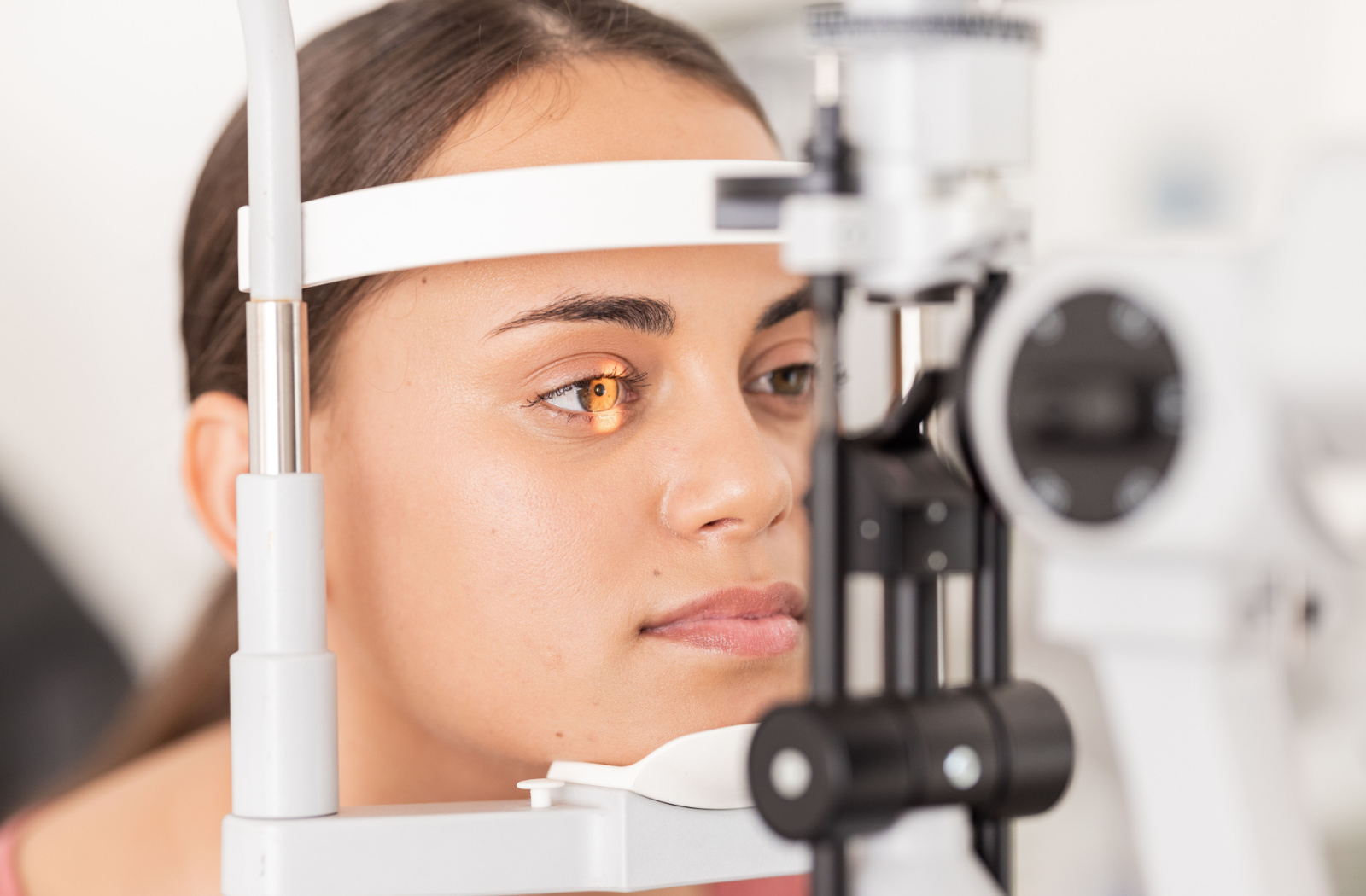As we age, our bodies undergo quite a few changes. It’s perfectly natural to wonder what changes are normal and what they look like. For those who have lived with myopia throughout their life, they often wonder: does myopia get worse with age?
Myopia typically progresses quickly during childhood and slows around age 18–20 when overall growth slows. Myopia can sometimes develop in adulthood, but this is generally due to natural age-related changes in the eye.
Vision changes may require attention from an optometrist for proper diagnosis and management. Regular visits to your eye doctor become especially important as we age.
What Is Myopia?
Myopia, also known as nearsightedness, is a problem in the eye that creates difficulty in seeing objects at a distance but nearby objects are clear. Myopia changes how the eye refracts light, so it’s called a “refractive error.”
When your eye grows longer than its width, or when the cornea becomes too curved, your eyes can’t bend light correctly, landing in front of the retina instead of on it. This causes blurry distant vision and clear nearby vision.
Myopia usually develops around age 6 or so and continues progressing as the eyes grow. The eye undergoes quite a few changes during this time, so myopia usually worsens before stabilizing around age 18–20.
Myopia Control for Children
When an optometrist notices a child has myopia, they often recommend a form of myopia control. This is a treatment aiming to slow how far the condition progresses to preserve your child’s long-term vision.
They may recommend:
- Orthokeratology, specialty contact lenses that apply gentle pressure to the cornea and reshape it. They are worn overnight and are removed in the morning.
- Atropine eye drops, specialty drops that temporarily paralyze certain muscles in the eye.
- Multifocal lenses, specialty lenses containing rings of focus that correct vision and slow myopia simultaneously.
Does Myopia Get Worse When You’re Older?
Your body changes as you age, and the eyes are no exception. Between the ages of about 6 to 20, your myopia will progress as your eyes grow. Simply put, your prescription as a child won’t be the same as when you’re an adult. It’s a perfectly normal part of aging.
Once you’re around the age of 20, myopia typically stabilizes. However, if your vision continues to change, it may be a more serious issue, either progressive myopia or a different eye disease. Regular eye exams can help diagnose eye problems and give your optometrist a chance to monitor changes in your vision over time.
But if you’re over the age of 40 and you notice your vision is worsening, it could be due to presbyopia.
What Is Presbyopia?
Presbyopia is a common age-related refractive error that begins developing around age 40. It occurs when the eye gradually loses its ability to focus on nearby objects.
Your eye’s lens sits right behind the pupil. The lens changes shape to change the focal distances of your eyes. When you’re younger, it’s soft and flexible and has no issues switching between different distances. But as you age, it becomes less flexible and loses some ability to change shape, impacting your ability to focus on close-up objects.
If you have presbyopia, you probably find it difficult to read small print, use your smartphone, or perform tasks that require close-up vision. Reading, multifocal, bifocals, progressive lenses, or multifocal contacts can correct presbyopia and help you see these things. But, like myopia, it affects everybody a little differently. Some people may not require glasses at all, while others may need reading glasses all the time.
Can You Fix a Refractive Error?
Once you’re an adult and your eyes have stopped growing, there’s no way to reverse or “cure” refractive errors. Children can undergo myopia control to help slow or stop their myopia progression, but this is only possible when the eyes are still growing.
But refractive errors can be easily corrected. It starts with a visit to your optometrist for a regular eye exam. Your eye doctor can measure changes in your eyes and vision and recommend:
- Eyeglasses
- Contact lenses
- Corrective surgery, like LASIK or PRK
For corrective surgery, you’ll need to schedule a laser surgery consultation. Your optometrist will perform a comprehensive eye exam to determine if you’re a good candidate for the surgery.

Where to Get Help for Myopia
If you are concerned about your myopia or simply looking for vision solutions, come visit us at Golden Hills Optometry. Our team of eye care professionals will evaluate your eyesight and help make a plan to address your myopia. We’re here to help, so book an appointment with us today!



